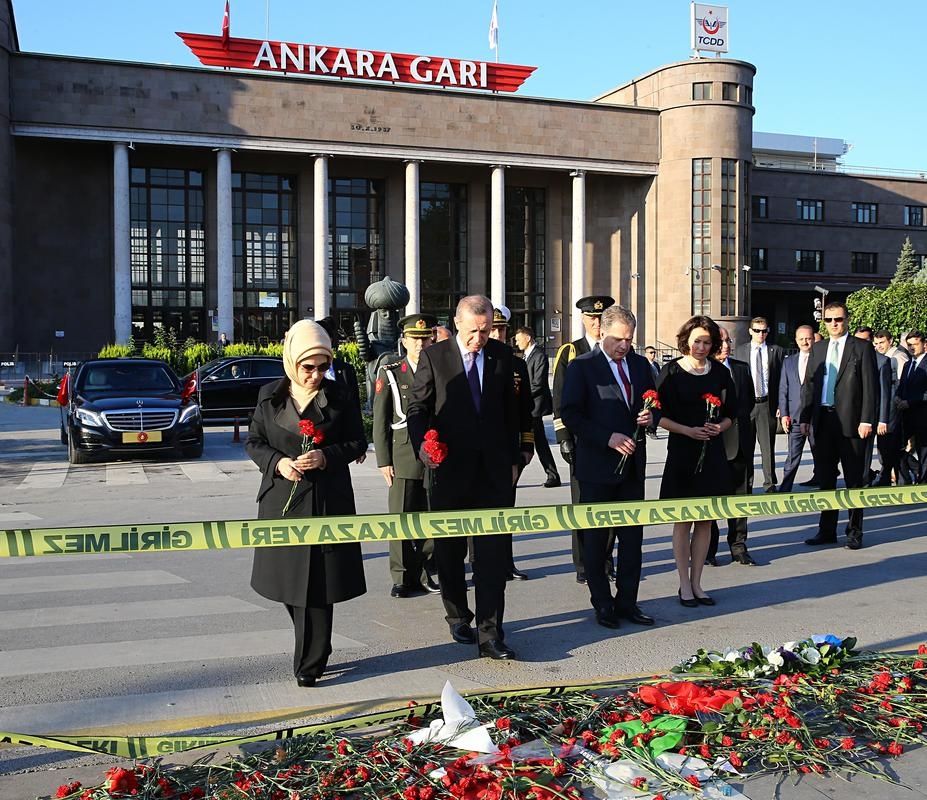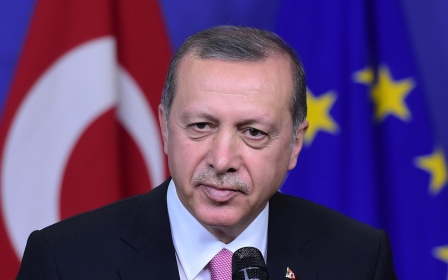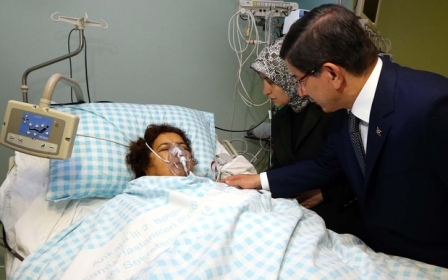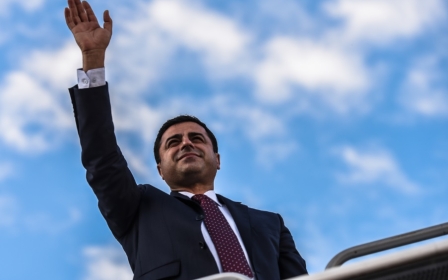Turkey sacks three top police officials after Ankara bombings

Three top Turkish police officials were sacked on Wednesday over the weekend's twin blasts in Ankara, as the under-fire president paid homage to the 97 killed in the country's bloodiest attacks.
The Turkish interior ministry said the officials fired included the head of police for the greater Ankara area, as well as his intelligence and public security chiefs, amid accusations of security lapses.
Earlier on Wednesday, President Recep Tayyip Erdogan laid a wreath in front of the city's railway station where two suicide bombers blew themselves up on Saturday in a crowd of leftist and pro-Kurdish activists attending a peace rally.
The government has said the Islamic State (IS) is the prime suspect behind the attack, which also injured more than 500.
The weekend bombings have raised political tensions to new highs as Turkey prepares for a 1 November snap election, with polarisation within the country now greater than ever.
Erdogan has admitted there were security shortcomings but said their magnitude would only be made clear once all the details are available.
Special investigation
He said the Ankara attack culprits will be brought to justice but warned "some patience is needed" as DNA tests are carried out on the remains of the two suicide bombers.
"There must undoubtedly be a mistake, a shortcoming in some place. Of what dimension? This will emerge after examinations," Erdogan said on Tuesday.
"If there's any negligence of duty, then both the prime minister and related units will take steps needed. Nobody should doubt it," he added.
Erdogan announced that he ordered the State Supervisory Council (DDK), an inspection body attached to the Turkish presidency, to undertake a special investigation "to handle (the attack) from a different perspective".
Its probe will be held in parallel with the regular police and judicial investigation. The DDK has in the past probed state-sensitive issues like the death in 1993 of former president Turgut Ozal, which many regard as suspicious.
There have been growing indications that the authorities are focusing on possible parallels or links to a 20 July suicide bombing at a peace rally in Suruc on the Syrian border that killed 34.
Intelligence links attacks to Syria
Erdogan said Turkey received intelligence indicating that the Ankara attack may be linked to Syria, where IS militants have captured swathes of territory up to the Turkish border.
"We received intelligence that there were some preparations for various attacks by entering our country. There is some intelligence that this has roots in Syria," he said.
Over the weekend and on Monday, police arrested dozens of people with suspected links to IS in cities stretching from the Mediterranean resort of Antalya to the southern city of Adana.
The attacks came as the government was waging a relentless "anti-terror" offensive against the outlawed Kurdistan Workers Party (PKK), even after the group announced a ceasefire at the weekend.
In the latest air raids on PKK targets, the military said 12 "terrorists" were killed in air strikes on their hold-outs in the southeastern Hakkari region.
The PKK is classified as a terrorist organisation by Turkey, the EU, the US and other countries.
Middle East Eye propose une couverture et une analyse indépendantes et incomparables du Moyen-Orient, de l’Afrique du Nord et d’autres régions du monde. Pour en savoir plus sur la reprise de ce contenu et les frais qui s’appliquent, veuillez remplir ce formulaire [en anglais]. Pour en savoir plus sur MEE, cliquez ici [en anglais].




